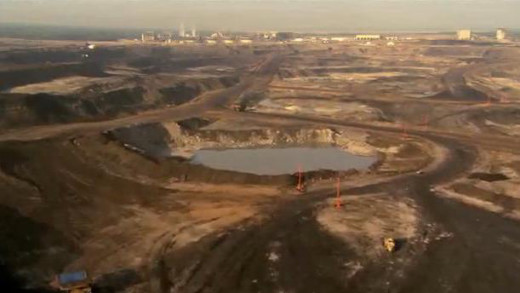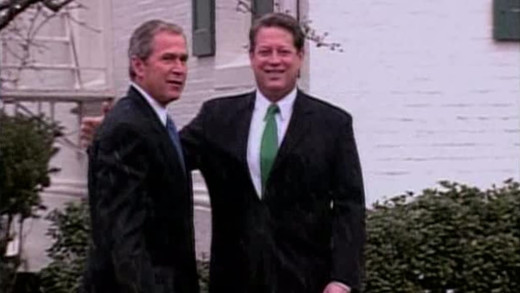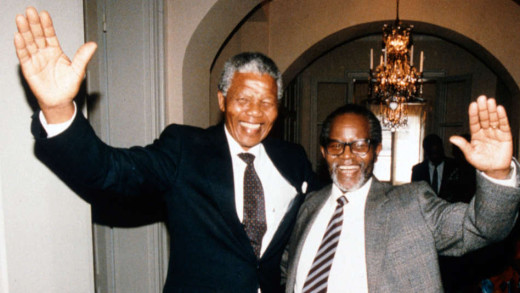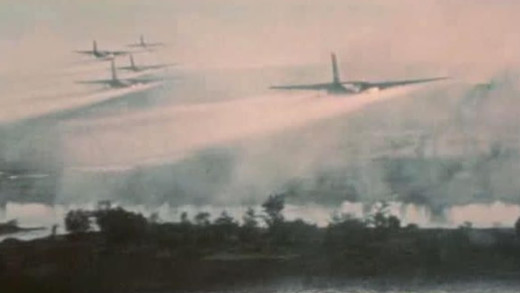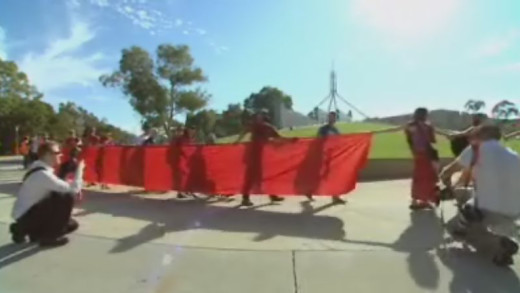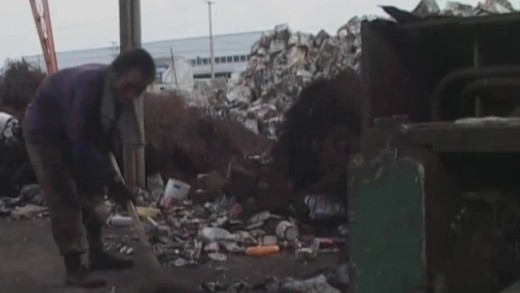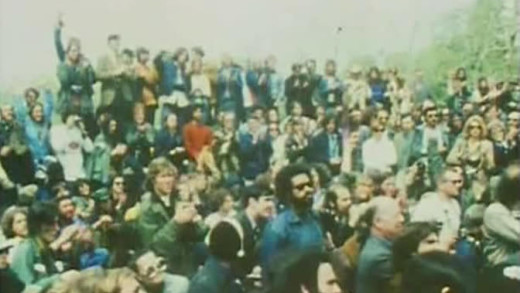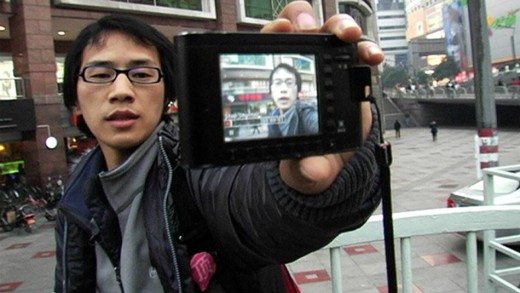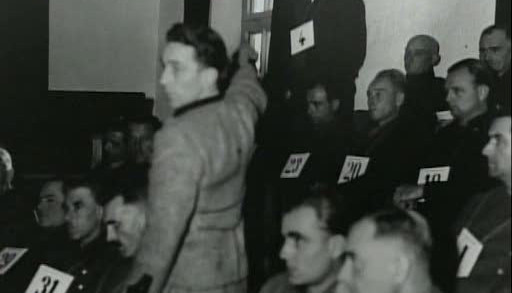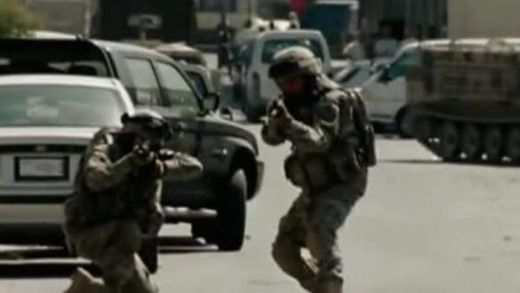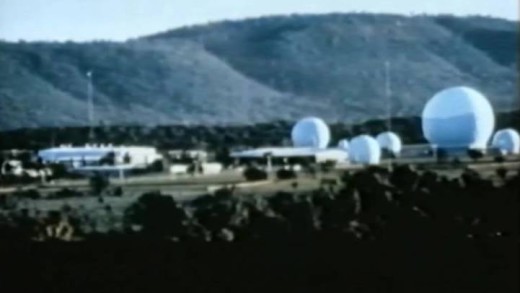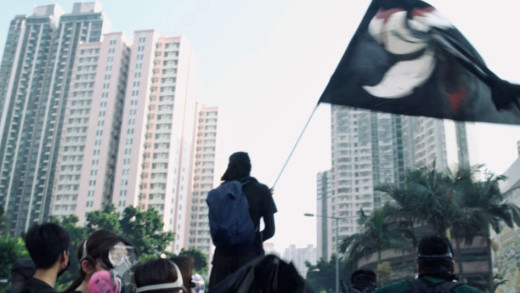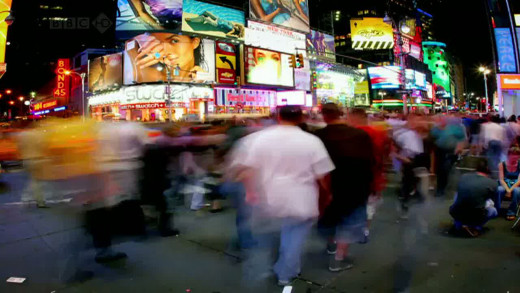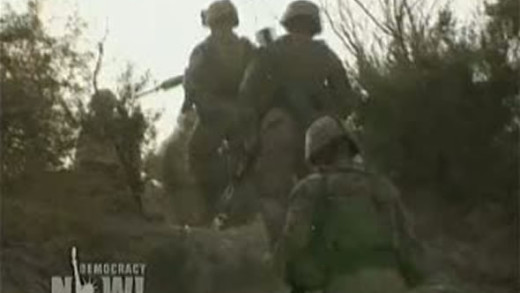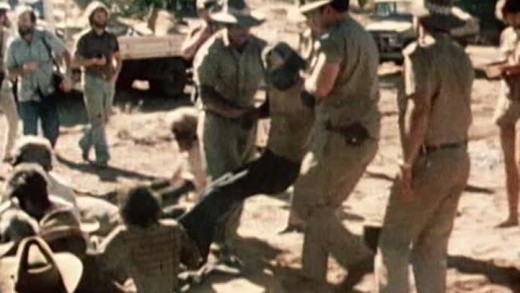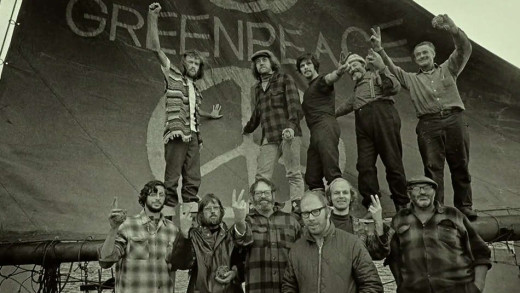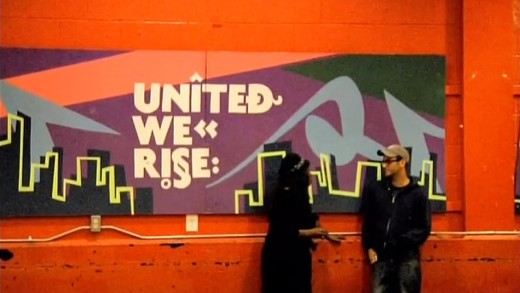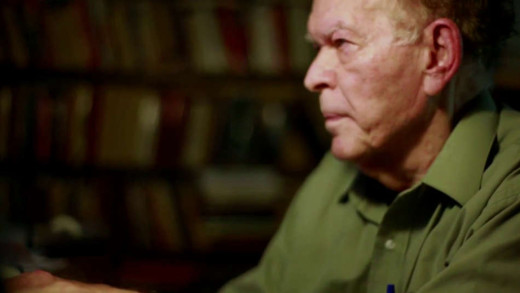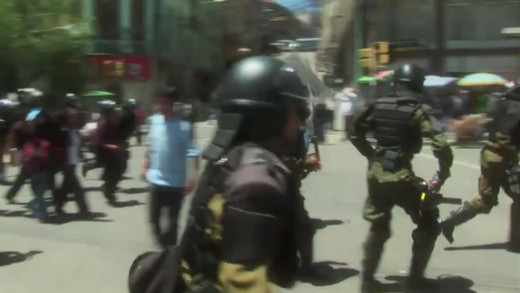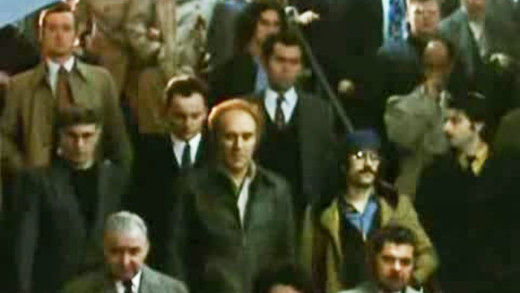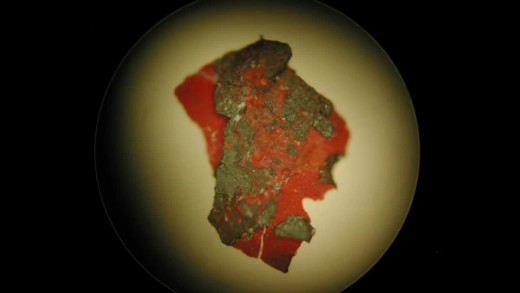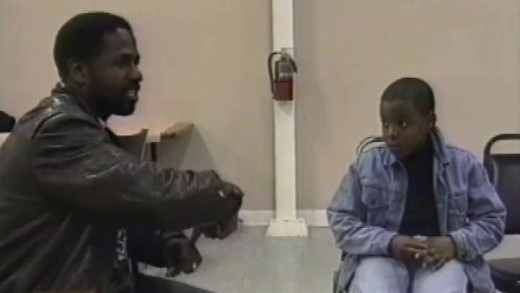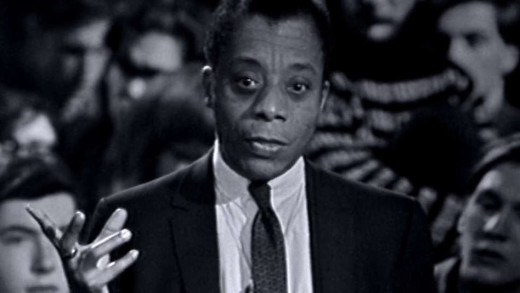h2Oil
Canada is now the biggest supplier of oil to the United States, thanks to the Alberta tar sands—a controversial billion-dollar project to extract crude oil from bitumen sands, using a very toxic process that has generated international cause for concern. Four barrels of glacier-fed spring water are used to process each barrel of oil, along with vast amounts of electricity. The waste water is dumped, filled with carcinogens and other chemicals, into leaky tailings ponds so huge that the piles can be seen from space. Downstream, people and communities are already paying the price with contaminated water supplies and clusters of rare cancers. Evidence mounts for industry and government cover-ups. In a time when wars are fought over dwindling oil and a crisis looms over access to fresh water, which will we allow to turn out to be more precious to us?
Filmed over three years, Hacking Democracy documents a group of American citizens investigating anomalies and irregularities with the electronic voting systems used during the 2000 and 2004 US Presidential elections. The investigation revolves around the flawed integrity and security of the machines, particularly those made by the Diebold corporation. Could the elections have been rigged?
Hardcore
Felicity, a 25-year-old single mother living in England, is desperate to make money to improve her daughter's opportunities. She is invited by a porn agent to travel to Los Angeles, the centre of the porn industry, to make a career as a pornstar. Hardcore follows Felicity over three weeks, as she ends up immersed in the deeply disturbing and degrading world of pornography production. Her agent introduces her to Max Hardcore, a notorious abuser, known for humiliating and abusing women for films. Aware of his reputation for choking women--and that he often asks women to dress as underage girls--Felicity does not want to meet him, let alone work with him, yet she is pressured by her agent until she agrees. When Max Hardcore chokes her, and she breaks down in tears, he attempts to manipulate her into continuing, and is almost persuaded until the documentary crew steps in for fear of being complicit in rape. The documentary is extremely difficult viewing, but depicts a true face of the porn industry, and the toxic culture it is embedded in.
2009, pornography has grown into a $10 billion business, and some of the world's most-known corporations are silently sharing in the profits. Companies like Time Warner, Marriott, and Vodaphone earn huge amounts of revenue by piping pornography into homes and hotel rooms, but you won't see anything about it in their company reports. Even the Catholic Church invests in companies that distribute pornography, along with pension funds that earn huge profits from investing in ventures that relate to porn. Hardcore Profits is a two part television series that explores how in the 21st century, pornography has never been more profitable, nor more pervasive.
Have You Heard From Johannesburg? is series chronicling a history of the global anti-apartheid movement that opposed South Africa's entrenched apartheid regime. The movement encompassed many methods, including mass action, underground organising, armed struggle, and international mobilisation. This series focuses on the last category: the movement to mobilise worldwide citizen action to isolate the apartheid regime. Inspired by the courage and suffering of South Africa's people as they fought back against the violence and oppression of racism, foreign solidarity groups, in cooperation with exiled South Africans, took up the anti-apartheid cause. Working against the odds, in a climate of apathy or even support for the governments of Verwoerd, Vorster and Botha, campaigners challenged their governments and powerful corporations in the West to face up to the immorality of their collaboration with apartheid, revealing that the battle was more than just political. It was economic, cultural, moral, and spiritual. The combined stories have a scope that is epic in both space and time, spanning most of the globe over half a century. Beginning with the very first session of the United Nations, and ending in 1990--when, after 27 years in prison, Nelson Mandela, the best known leader of the African National Congress, toured the world, a free man.
From 1974, Hearts and Minds documents the events of the Vietnam War using news clips as well as directly captured footage showing actions and other happenings on the ground by the United States military during the war. The film also follows Vietnamese people themselves as to how the war affects them and why they fight back. Hearts And Minds reveals a racist and self-righteous militarism of the west, ironically in stark similarity to recent happenings in Iraq and elsewhere.
On the eve of the Australian government's release of its controversial climate change legislation, reporter Liz Jackson investigates the relentless lobbying campaign conducted over the past 12 months by both environmentalists and industry. Who has won out? Will Australia have an emissions trading scheme, as the government has promised, by 2010?
Heavy Metal
For more then twenty years, many hundreds of tons of electronic waste--or e-waste--from all around the world has been transported to an infamous Chinese town called Fengjang, just south of Shanghai, for disposal and so-called 'recycling.' Around 50,000 migrant workers constitute part of the massive workforce necessary to dispose of e-waste, with the downcycling component of the operations involving cutting, splitting, and salvage--most-often with rudimentary equipment. The workers toil endlessly to process almost 2 million tons of garbage every year, bearing incredible precariousness, and even putting in danger their own health due to the simply unacceptable working conditions and also the toxic characteristics of the metals, chemicals and materials they're handling. As the recognisable heaps of waste continue to pile up, Heavy Metal provides a moving image of a worldwide consumer society and the stark direct impacts of an 'invisible' waste.
Heroes
Heroes reports on the treatment of returning combat soldiers from Vietnam in the early 1980s. The film investigates the strange cultural absence of reverence or memory to soldiers returning home, and shows with first-hand accounts and interviews with returning soldiers, opines from the front line about America's unpopular war.
High Tech, Low Life follows the journey of two Chinese bloggers who travel their country chronicling undner-reported news and social issues stories. Using laptops, mobile phones, and digital cameras, both develop skills for reporting while learning to navigate China's continually evolving censorship regime and the risks of political persecution. The film follows 57-year-old 'Tiger Temple,' who earns the title of China's first "citizen reporter" after he impulsively documents an unfolding murder; and 27-year-old 'Zola' who recognises the opportunity to be famous by reporting on sensitive news throughout China. From the perspective of vastly different generations, both personalities must reconcile an evolving sense of individualism, social responsibility and personal sacrifice. The juxtaposition of Zola's coming-of-age journey from veggie-farmer to Internet celebrity; and Tiger Temple's commitment to understanding China's tumultuous past, both provide a portrait of China and of the wider questions facing news-reporting in the age of the Internet.
Hijacking Catastrophe examines the evidence that neoconservatives used the September 11, 2001 attacks to usher in a new doctrine of expanding American power through military force under the guise of a "war on terror" and that the doctrine -- known as the Project for the New American Century -- had been laid out prior to 9/11 by its authors, which include Dick Cheney, Paul Wolfowitz, Donald Rumsfeld, Jeb Bush and Dan Quayle...
In the early 1940s, hundreds of thousands of people unknowingly became test subjects in toxins experiments and biological weapons tests conducted by the United States government. LSD tested on civilians, nerve gas sprayed into suburbs, hospital patients injected with plutonium, children exposed to biological and chemical agents just to see what would happen...the list goes on. And in most if not all cases, tests were carried out without the knowledge or consent of those involved. In 1996, evidence of these secret operations hit the news, uncovering a history of secret operations and covert projects that cast a large shadow over the operations of US military and intelligence agencies, to this day. Experiments with biological weapons and the testing of chemical warfare were only part of the story...
War is hell, but for Hollywood it has been a god-send, providing the perfect dramatic setting against which courageous heroes win the hearts and minds of the movie going public. The Pentagon recognises the power of these celluloid dreams and encourages Hollywood to create heroic myths; to rewrite history to suit its own strategy and as a recruiting tool to provide a steady flow of willing young patriots for its wars...
In 1966, Australia made an agreement with the United States that allowed the establishment of a secret military base satellite tracking station, just south of Alice Springs in the Northern Territory. The facility is called Pine Gap and for more than forty years it has operated in a shroud of secrecy and been the target of much controversy. Home on The Range attempts to contextualise these issues by highlighting the history of the base and its origins, as well as the stories of controversy. Some of these include the Khemlani Affair and the sacking of the Whitlam government in 1975, the Christopher Boyce spy trial, the role of the Central Intelligence Agency and its former agent Victor Marchetti, as well as documenting the post-war culture of government secrecy, sprawling intelligence agencies and foreign affairs and policy. But Home on the Range does more than gesture toward such CIA interventions. It marshals a persuasive array of evidence linking the imminent expiry of leases on United States military and intelligence bases in Australia in 1975, to the CIA and Whitlam's sacking, posing direct questions about the nature of democracy in regions beholden to the United States.
When Hong Kongers took to the streets to protest a controversial extradition bill proposed by China in 2019, it exposed the tensions long brewing in the city. Over two days of conflict, Hong Kong Moments follows a pro-democracy protester, a tea-shop owner, a paramedic, a cab driver, a police officer, and two politicians with conflicting politics as the demonstrations shoehorn the political into the personal. On September 21, 2019, protestors from three districts join forces, resulting in unprecedented violence. Just 10 days later on October 1, the National Day of the People’s Republic of China, previously undecided onlookers show their stripes. Thoughts transform into action in this demonstration of how mercurial and personal Hong Kong's politics have become.
Hot Girls Wanted is an up-close and personal view into the lives of several 18 to 25 year-old girls who are lured into the world of amateur pornography on the Internet. The film sets out to illustrate just some of the many ways the industry really works as opposed to how it appears, as well as providing an insight into the modern recruitment process—the pundits on the inside call it 'The Game.' And there are many tricks. According to the teens themselves, many come to porn by the promise of rich extravagant lifestyles, as well as fame and visibility. And while the money can be good for some, at least for a little while, that's only a small part of the picture. The myths are many and there is a brutal reality of life in the industry, causing high turnovers of girls—once they cotton-on to The Game...
Is the world heading for a population crisis? Since 1950, the human population has more than doubled. What is the effect of this rapid growth on the environment? While much of the projected growth in human population is likely to come from the so-called "developing world," it is the lifestyle enjoyed by the West that has the most impact--in the UK consumers use as much as two and a half times their fair share of Earth's resources. This film examines whether it is the duty of individuals to commit not only to smaller families, but to change the way they live for the sake of humanity and planet Earth.
Welcome to the wartime contracting bazaar in Afghanistan. It is a virtual carnival of characters with shady connections—former CIA officials and ex-military officers joining hands with former Taliban and mujahedeen to collect US government funds in the name of the war effort. US military's contractors pay suspected insurgents to protect American supply routes. It is an accepted fact of the military logistics in Afghanistan that the US government funds the very forces American troops are fighting—a deadly irony...
On 1 May 1946, under occupation and wage slavery by the white man, 800 Aboriginal workers walked off sheep stations in the north-west of Western Australia, marking the beginning of a carefully organised strike that was to last for at least three years, and never officially ended. The strike was a demand for basic freedoms and for better wages considering the imposed conditions. A fight that sadly continues to this day, speaking to the truth of a country still occupied and brutally colonised, land that was never ceded.
In the early 1970s, in response to the United States testing nuclear weapons on the island of Amchitka, a group of environmental activists got together with the aim of sailing a ship out to Amchitka to disrupt the weapons tests and stop them. But fuelled by bad weather, delays, infighting and clashes of ego, the group never reached the island and the weapons tests went ahead. Yet the symbolism of their attempt flourished in the media, entering the public consciousness. This is where the "Greenpeace movement" was born, emerging from the era of a philosophy of passive resistance, where bearing witness to objectionable activity is supposedly protested simply by a mere presence. But just how far can this philosophy go to actually stop atrocities? This film reveals the answer to that question, where Greenpeace eventually morphs into a large global organisation, far from its environmental ideals. Internal fallout leads to the founders each drifting their own separate ways, with some even coming to criticise Greenpeace and others even actively working against their own creation.
How to Let Go of the World and Love All the Things Climate Can't Change travels the globe, from New York City to the Marshall Islands and China, to meet with people who are committed to reversing the tide of global warming. The film examines the intricately woven forces that threaten the stability of the climate and the lives of the world's inhabitants.
How to Start a Revolution is a profile of Nobel Peace Prize nominee and political theorist Gene Sharp, who is described as one of the world's foremost scholars on nonviolent revolution. The film profiles Sharp and his ideas, as well as their influence on popular uprisings around the world. There is particular focus on Sharp's key text From Dictatorship to Democracy, which has been translated by activists into more than 30 languages, and used in revolutions from Serbia and Ukraine, to Egypt and Syria. Quiet and unassuming, a softly spoken Sharp describes how his 198 methods of nonviolent action have spread from his tiny Boston office to inspire and inform uprisings across the globe.
How To Stop A Multinational follows three women in Argentina as they put themselves in harms way to stop a gold mining company from entering their town. With the activists having defeated a Canadian mining company, the campaign is now against a Chinese one that wishes to extend the operation, making use of large quantities of fresh water--up to 45,000,000 litres per day--a plan that seriously threatens the future viability of the town and the environment. This short film documents the campaign which is still in its early days, where activists carry out a series of direct-actions to stop the mining company from physically entering the town; training villagers, informing others and filming the outcomes along the way...
Human Resources -- Social Engineering in the 20th Century is about the rise of mechanistic philosophy and the exploitation of human beings under modern hierarchical systems. The film captures how humans are regarded as a resource by corporations--something to be exploited for pecuniary gain--by following the history of psychological experiments in behaviour modification, conditioning and mind control; applying the outcomes to modern day establishment experiments such as institutionalised education, and social engineering by way of things like television...
HyperNormalisation wades through the culmination of forces that have driven this culture into mass uncertainty, confusion, spectacle and simulation. Where events keep happening that seem crazy, inexplicable and out of control—from Donald Trump to Brexit, to the War in Syria, mass immigration, extreme disparity in wealth, and increasing bomb attacks in the West—this film shows a basis to not only why these chaotic events are happening, but also why we, as well as those in power, may not understand them. We have retreated into a simplified, and often completely fake version of the world. And because it is reflected all around us, ubiquitous, we accept it as normal. This epic narrative of how we got here spans over 40 years, with an extraordinary cast of characters—the Assad dynasty, Donald Trump, Henry Kissinger, Patti Smith, early performance artists in New York, President Putin, Japanese gangsters, suicide bombers, Colonel Gaddafi and the Internet. HyperNormalisation weaves these historical narratives back together to show how today's fake and hollow world was created and is sustained. This shows that a new kind of resistance must be imagined and actioned, as well as an unprecedented reawakening in a time where it matters like never before.
Hypothesis
In 2005, a physics professor named Steven Jones published a paper of a scientific hypothesis regarding the free-fall speed collapse of 3 buildings on September 11, 2001—the twin towers, and the collapse of World Trade Center building 7 which was not hit by a plane. He proposed based on obvious observations of the collapse, alongside direct evidence of the use of incendiaries, that the only way for all buildings to have collapsed the way they did was in a controlled demolition of some kind. Faced with scientific evidence challenging official reports, what ensued was a firestorm—Jones received hate mail, threats, muddled media attention, and even offers of bribes to stop his research. Why was this information so thoroughly reviled? And why such scientific evidence ignored and further inquiry suppressed?
I Am A Man is a film that links everyday black men from various socioeconomic backgrounds with some of Black America's most progressive academics, social critics and authors to provide an engaging, candid dialogue on black masculine identity in North American culture.
In 1979, author and activist James Baldwin wrote a letter to his literary agent describing his next project, Remember This House, which was to be a revolutionary, personal account of the lives and assassinations of three of his close friends--Medgar Evers, Malcolm X and Martin Luther King, Jr. But eight years later, Baldwin died, leaving behind 30 completed pages. I Am Not Your Negro is a film of the book that was not finished, offering an incendiary snapshot of James Baldwin's crucial observations on race relations in the United States, with a flood of rich archival footage. The film is a journey into black history that connects the past of the Civil Rights movement to the present of #BlackLivesMatter, questioning black representation in the United States and beyond.
